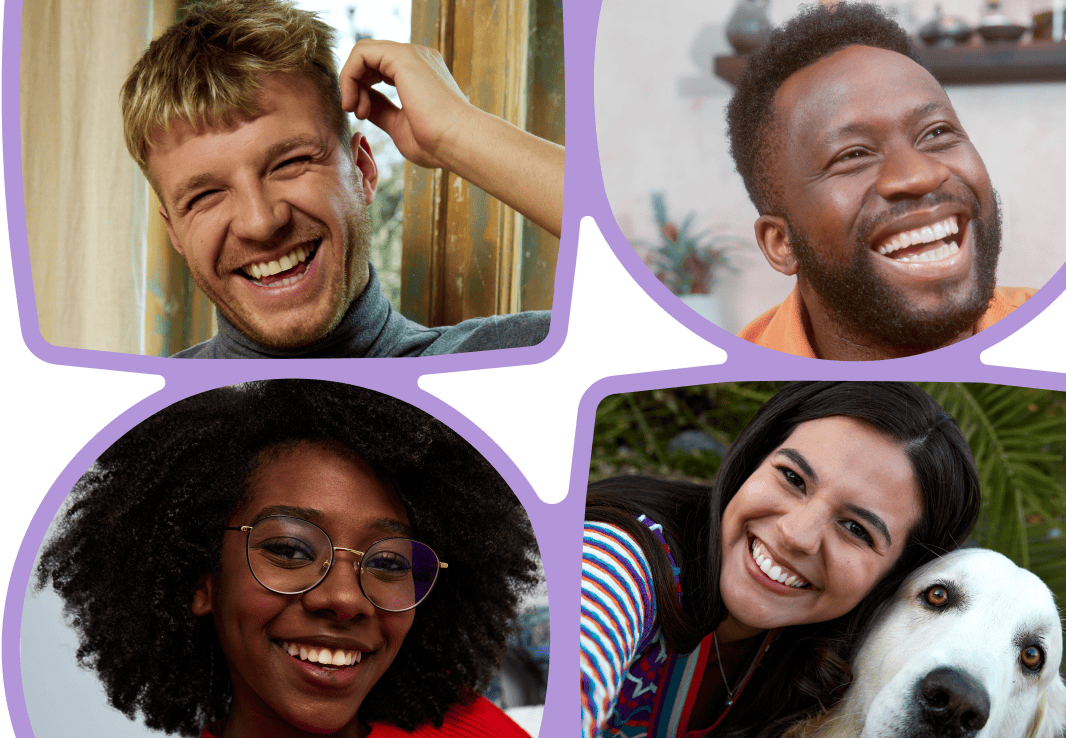For survivors of sexual assault, entering back into the dating world can be daunting. Badoo spoke with Laura Ramírez Vergara, therapist partner for online trauma support platform Bloom, for advice on how to date again after experiencing sexual trauma. It’s important not to rush into anything you might not be ready for, but if you are at a stage where you’d like to begin dating again, read on for her tips and advice.
1. Take your time and be gentle with yourself
“Getting back into dating should be your decision,” says Ramírez Vergara. “Having experienced sexual trauma, it might take some time to understand and process what happened. Give yourself time to process difficult emotions like fear, anger, shame, guilt—anything that might come up,” she says.
If and when you do decide to dip your toe into the dating world, remember to take care of your own needs first. “Self-care should be a priority,” says Ramírez Vergara. “It´s very important to take your time and connect with yourself and your needs. Remember, self-care can look different for you at different stages in life. Be very curious about what makes you feel good, safe and connected.”
2. Regain awareness and learn to trust yourself
Before being able to connect with another person, it’s key that you are able to connect with yourself. “Having suffered from trauma means that sometimes you can disconnect from yourself, your emotions, and your body,” explains Ramírez Vergara. It's important to regain awareness of how you’re feeling, and how these emotions feel in your body in order to process them. “Be curious about what can help you reconnect like exercise, yoga, art, or anything that helps you create a safe space to experience your feelings and feel your body,” she says.
3. Identify your triggers and have an action plan
According to Ramírez Vergara, if you learn to identify what triggers anxiety and fear, you can then learn how to cope with them efficiently. “The main trigger responses are fight, flight, freeze and fawn. It’s important to reflect on how any of these might show up when dating and have strategies to cope,” she says.
Ramírez Vergara also points out that it's important to keep in mind that you won't be able to always prepare for triggers–as dating and life, in general, can be unpredictable. Some triggers might occur unexpectedly–but having a plan if something happens can give you a sense of control.
4. Have a support network
When starting to date again, you might experience conflicting emotions like excitement and dread. That’s why Ramírez Vergara says “It’s important to surround yourself with people who support you and make you feel validated. Working with a therapist can also be very beneficial to your healing journey.”
5. Identify what makes you feel safe and communicate your boundaries early on
Taking your time to chat with people before deciding to meet can help you get a sense of who they are and how comfortable you feel. Once you’ve arranged a date, Ramírez Vergara recommends planning what you do together, determining meeting times and setting up a safety check with a friend to feel more in control. “This can help you foster a sense of safety that might help you relax,” she says.
“Don't worry if you still feel a bit anxious or fearful. It's completely normal,” explains Ramírez Vergara. “Be open to what comes and do what feels right in the moment. Remember you can always leave at any time if you feel uneasy.”
Regarding your boundaries, Ramírez Vergara explains that it can be helpful to write them down–and plan a response if someone doesn't respect them. “It's important to assess whether you’re comfortable with any physical activity beforehand, and you can discuss your boundaries and the need for explicit consent ahead of time. Remember you don't have to rush into anything: the right people will respect your boundaries,” she says.
6. Learn how to identify if someone is worthy of your trust
Whilst the onus on someone’s harmful behaviour is never on you, Ramírez Vergara suggests listening to your gut when it comes to trusting a potential match. “Check if they listen to you, respect your boundaries and that their actions match their words consistently,” she suggests.
7. Decide if you want to disclose the assault
“You don't owe anyone your story. It’s for you to decide if you want to disclose information about sexual trauma, and how and when you do so,” says Ramírez Vergara. Bloom offers free courses including one on “how to tell someone about the assault” which provides a script you can use to help you navigate this conversation.
Lastly, remember that no matter what has happened to you, you are worthy of love, care, and respect. Healing takes place in relationships and connections to others that make you feel seen and valued.
If you or someone you know needs support, Badoo has partnered with Chayn to offer courses that support survivors of sexual assault and relationship abuse on their healing journey through the online platform Bloom. You can access the free self-guided courses and 1:1 chats with Bloom’s gender-based violence experts here.




